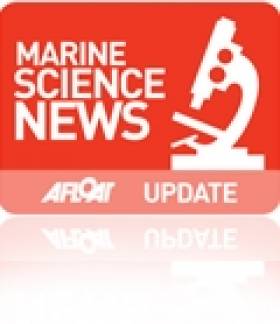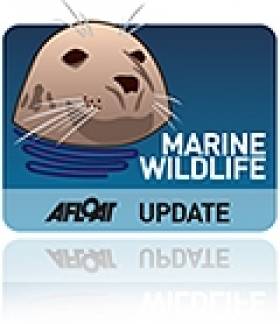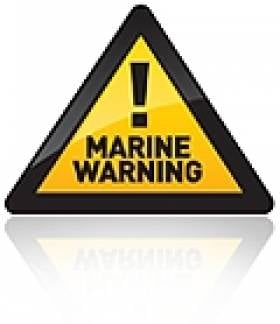Displaying items by tag: shellfish
Galway Hosts Shellfish Safety Science Workshop
#MarineScience - The 10th Shellfish Safety Science workshop will take place at the Marine Institute in Galway on Thursday 18 April 2013.
This one-day event is an opportunity for anyone working in the area of shellfish safety, including regulators, scientists as well as industry, to meet and exchange information on the latest advances in the field.
Irish regulatory agencies will provide updates on recent shellfish biotoxin, toxin-producing algae, harmful algal blooms and shellfish microbiology.
There will be presentations from research projects that are nearing completion on the toxicology and causative organism responsible for Azaspiracid shellfish poisoning which caused extensive economic hardship in 2012 and 2013.
A new EU project using advanced satellite imagery, mathematical modelling and real-time monitoring to provide short-term predictions will be demonstrated, showing how this multidisciplinary approach may provide useful information on biotoxin outbreaks for shellfish producers.
On the microbiological side, presentations on shellfish contamination from Norovirus and how the Shellfish Waters Directive aims to monitor and improve environmental conditions for shellfish cultivation will be given.
Further information on these and other aspects of the workshop are available on the Marine Institute website at www.marine.ie. Attendance is free but registration is required by emailing [email protected].
Work Begins to Eliminate Sea Squirts in North Wales
#MARINE WILDLIFE - Work on exterminating sea squirts at a marina in north Wales has begun.
The £250,000 (€301,000) project by the Countryside Council for Wales involves attaching giant bags to the subsurface structures around the marina in Holyhead, which is hoped will stop the clean flow of water to the sea squirts, causing them to suffocate and die.
Marine biologist Rohan Holt, who is managing the project, said: “If we successfully eradicate the sea squirt, we will work hard to make sure that it does not recolonise.
"This will mean careful monitoring in Holyhead marina and other marinas and popular mooring areas throughout Wales to check that it hasn’t reappeared."
The sea creature threatens shellfish by spreading like a blanket across the seabed and other surfaces.
As previously reported on Afloat.ie, colonies of the invasive Japanese sea squirt are posing a throat to mussel and scallop bed in the Menai Strait between Anglesey and the mainland.
Boats from Ireland have been blamed for carrying the invasive pest into Holyhead.
The Daily Post has more on the story HERE.
Weekend 'Super Moon' Increases Risk of Strandings
The moon will be at its closest to earth since 1993 on Saturday March 19th.
This "Lunar Perigee", or 'Super Moon' as some astrologers refer to it as, is the opposite of the "Lunar Apogee", when the Moon is furthest from Earth. Generally, the Moon looks about 12-14% larger at its perigee compared to its apogee.
This has the effect of causing very high and low tides, or increasing the range of the tide. This will expose large areas of beach and rocks which we normally don't see. Many people enjoy walking on our beaches and exploring these new areas of beach and in particular people enjoy picking shellfish to eat which become exposed during these very low tides.
The risk to the public will be of becoming stranded as the tide advances back in which can leave people in a position where they are cut off from the shore. Members of the public are cautioned to be aware of this risk and carry your mobile phone. Should you get in to trouble then call 112 or 999 and ask for Marine Rescue, giving your exact location and in particular if you are near to any conspicuous landmarks nearby to assist the Rescue Services in locating your whereabouts.
All seafarers, surfers, swimmers and divers should be aware of the increased tidal streams that will be running around our coast over the weekend; people could find themselves in peril as a result of these strong and fast tidal conditions which have not been experienced for some time now.
































































